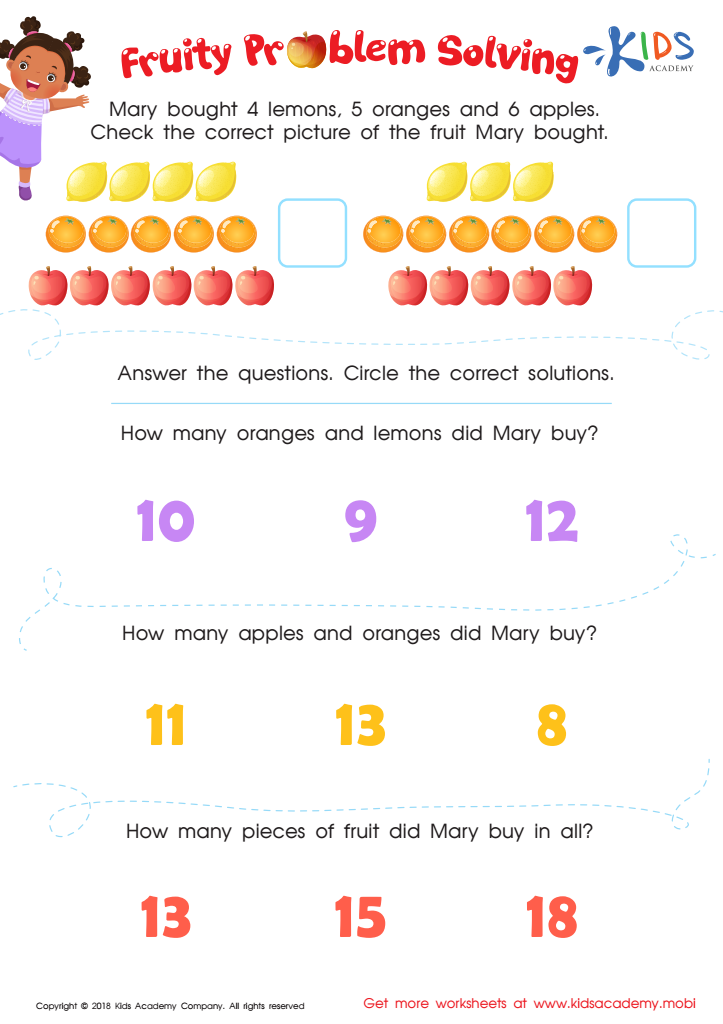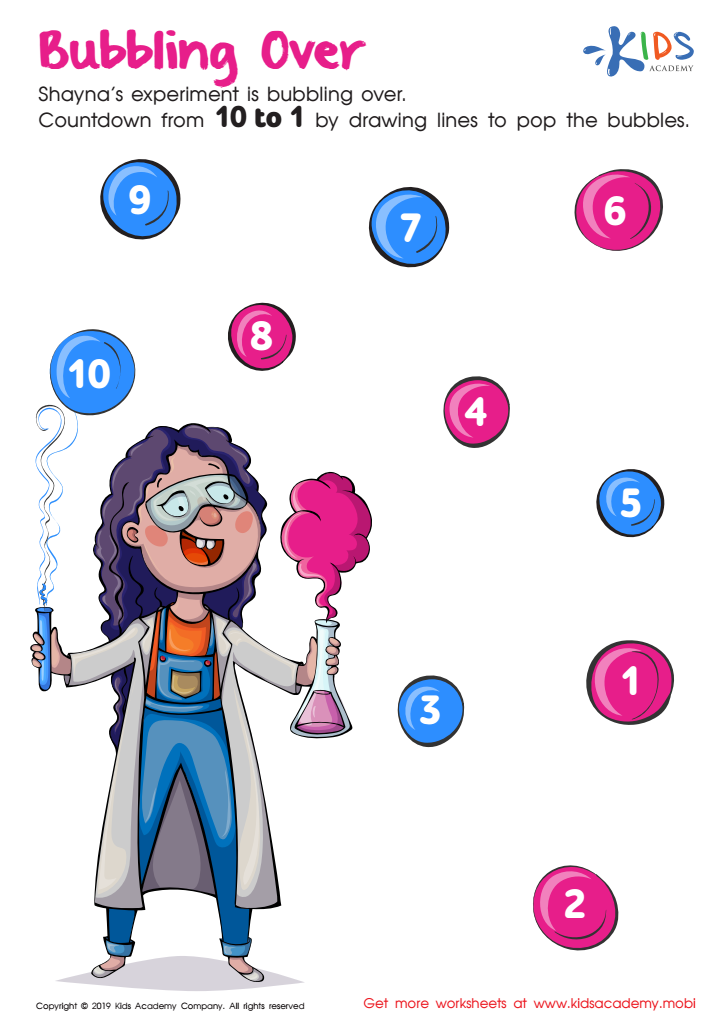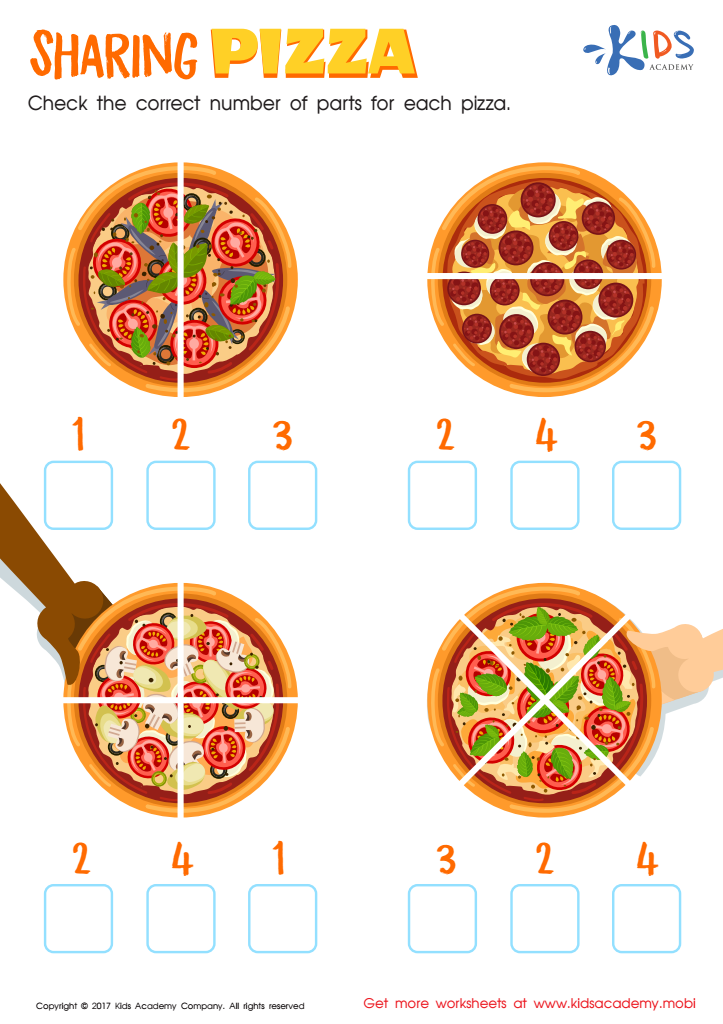Understanding fractions Numbers Worksheets for Ages 3-6
3 filtered results
-
From - To
Explore our engaging "Understanding Fractions Numbers Worksheets" designed specifically for children ages 3-6! These fun and interactive worksheets help young learners grasp the essential concept of fractions in a playful and relatable manner. With vibrant illustrations and engaging activities, kids will develop foundational math skills while exploring halves, quarters, and more. Our thoughtfully crafted exercises promote hands-on learning, allowing children to visualize fractions in everyday contexts. Perfect for parents and educators alike, these worksheets encourage critical thinking and enhance numerical understanding. Dive into the world of fractions today and watch your child grow confident in their math abilities!


Fruity Problem Solving Worksheet


Bubbling Over Worksheet


Sharing Pizza Worksheet
Understanding fractions is an essential foundational skill for children ages 3-6, and parents and teachers should prioritize this learning for several reasons. Early exposure to fractions allows children to grasp the concept of part-to-whole relationships, enhancing their mathematical literacy. As children engage with fractions through everyday experiences—such as sharing food, dividing toys, or measuring ingredients—they develop critical thinking skills and a deeper understanding of numbers.
Moreover, mastering fractions at an early age lays the groundwork for more complex mathematical concepts encountered later in their education. Recognizing patterns, developing number sense, and fostering spatial awareness are all integral to their mathematical development.
Additionally, engaging children with fun, interactive fraction activities can help make learning enjoyable and meaningful, encouraging a positive attitude towards mathematics. This initial understanding can support greater confidence and curiosity in their academic journeys.
Lastly, integrating fractions into play and daily activities helps cultivate essential life skills, such as cooperation and decision-making. By caring about children’s understanding of fractions, parents and teachers equip them with vital tools for future success, ensuring they approach math not just as a subject, but as a valuable part of their everyday lives.

 Assign to My Students
Assign to My Students



%20(1).jpg)












